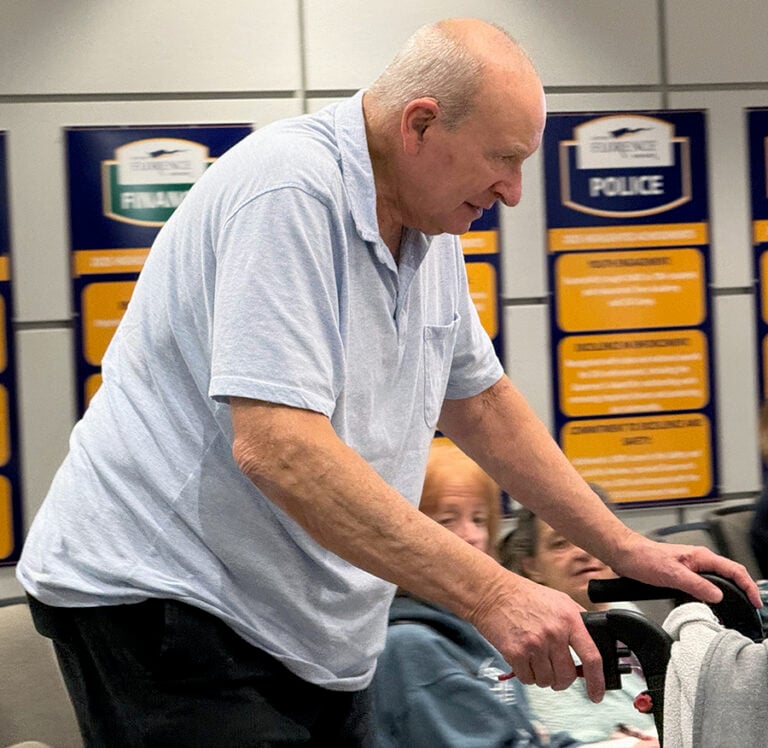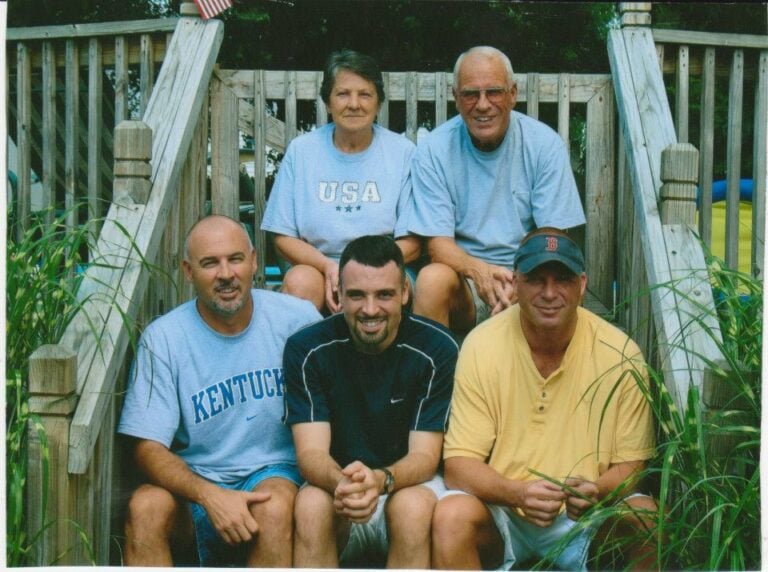By R.G. Dunlop
Special to NKyTribune
They live more than 2,300 miles apart.
Over the years they’ve visited in person for just a few hours once or twice a month, sitting on opposite sides of a table in an often-crowded room.
Their only physical contact: occasional hand-holding.
They were married more than 26 years ago — in a prison chapel.
The bride: Elizabeth Turpin, convicted murderer. The groom: Robert Reichel, former Ivy League college student and retired software developer.
She’s locked up at the Kentucky Correctional Institution for Women in Shelby County. He lives in Sammamish, Washington.

An unlikely couple? To say the least.
Now 59 years old, Turpin was found guilty by a jury of plotting the February 1986 stabbing death of Michael Turpin, her husband at the time. She was 19 years old. He was 22.
Elizabeth Turpin and her two co-defendants, who were convicted of carrying out the murder, all are serving prison sentences of life without the possibility of parole. Prosecutors said her motive for arranging the killing was to collect $60,000 in proceeds from Michael Turpin’s life-insurance policy.
Reichel, who is 61, was born on Long Island and attended Princeton University. He had no Kentucky connections until he and Elizabeth Turpin became acquainted via an online website, Women Behind Bars, which advertises itself as helping “find female inmate pen pals: connecting hearts and building friendships.”
Reichel began corresponding with Turpin and has flown to Kentucky periodically for more than two decades to visit her. He described in an interview how their relationship began and what it became.
After seeing information online about Turpin, “she sounded like sort of an interesting person,” said Reichel, who was divorced at the time. “It was enough to catch my attention. I had some time on my hands and I like writing letters. So, I decided to write a letter. She wrote a reply. We wrote a few more letters back and forth and then started talking on the phone.”
Reichel said he quickly became convinced that Turpin was a “very, very intelligent person.”
On his first trip to see Turpin face-to-face, Reichel said he brought food “and we just kind of had dinner together for a couple of hours and talked.” He said they had the best conversation possible with as many as 50 other people “in a crowded, noisy room.”
After making a number of trips to Kentucky to see Turpin, Reichel said he “eventually decided this is somebody I want to have in my life.”
Reichel said Turpin’s parents attended their October 1998 wedding in the prison chapel, but that none of his family or friends were present.
Nevertheless, he said, “My friends are generally supportive” of the relationship.
Reichel said each in-person visit with Turpin at KCIW typically lasts between four and six hours. She is permitted to see visitors on the first and third Saturdays of each month.
His journeys between Washington and Kentucky are “not super expensive,” each costing about $1,000, Reichel said. “I fly coach and I stay in an inexpensive motel.”
State records show that between November 7, 2009, and June 1, 2024, Reichel visited Turpin a total of 135 times. Eleven of those were video meetings, presumably COVID-related. The state said it has no records of any visits by Reichel to KCIW prior to November 2009.
They also talk by phone on an almost daily basis.
Reichel said Turpin has been “pretty upfront about the details of her crime.” But he didn’t find them off-putting.
“It was a horrible crime and I feel very bad for the Turpin family. But I don’t think she intended for Michael Turpin to die,” Reichel said. “I don’t think she intended for any of that to happen. I don’t believe that. I think she got a raw deal through the whole thing.” He did not elaborate.
According to published reports, Elizabeth Turpin at one point allegedly used money provided by Reichel to try and have other inmates assaulted. Asked if he wanted to share information about that, Reichel said, “You should discuss that with her.”
This reporter requested an interview with Elizabeth Turpin, but she never agreed to it.
While Reichel acknowledged that he routinely sends Turpin “a couple hundred dollars a month,” he said she uses the money to make phone calls and buy personal items from the prison canteen.
Betsy Matthews, an associate professor in the School of Justice Studies at Eastern Kentucky University, said relationships such as that involving Turpin and Reichel are “not common. It’s rather surprising.” Matthews added that it struck her as “odd that you would want to pursue a relationship with someone behind bars.”
Asked what he found appealing about his marriage to a convicted murderer incarcerated 2,000-plus miles away, Reichel said, “Elizabeth is a very interesting person.”
He said they also thought early in their relationship that Turpin might get a new trial and be released from prison.
“She was somebody who I felt I could spend my life with,” Reichel said. “We enjoy each other’s company. And she was somebody who I thought I could raise a family with” — an option he acknowledged is no longer viable due to their respective ages and her sentence of life without parole.
Still, he said, “My plan is to stick with her at this point. As long as it takes.”


















